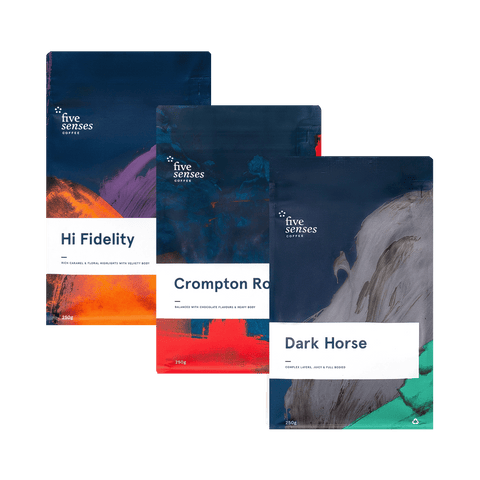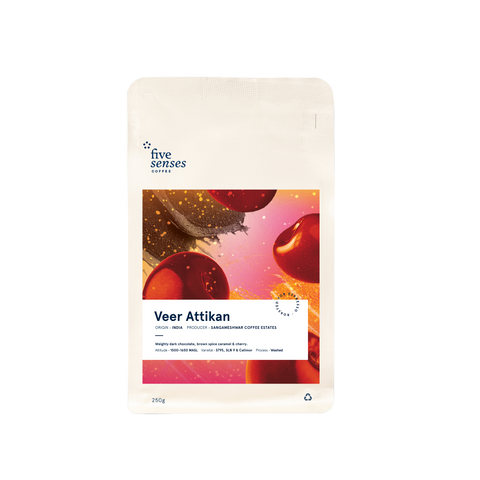The Muthigi-ini Coffee Factory was established in 1968 on seven acres of land and serves the villages of Cieni, Gaciongo, Kiaragana and Kariko. It is currently affiliated with the Rwama Farmers’ Co-operative Society Ltd. which has a membership of 1560 (1000 active farmers, and 560 inactive members). The area has a bi-annual production cycle, with the early harvest occurring from April-June and the late second season harvest happening from October-December.
The main varieties of coffee grown are SL28 and Ruiru 11, with SL28 accounting for 99% of the coffee, while Ruiru 11 makes up the final 1%.
The factory receives assistance from their partner, the
Coffee Management Services (CMS). Their long-term goal is to increase coffee production by training farmers, offering seminars on Good Agricultural Practice and through the production of a sustainable farming handbook which is updated and distributed annually. They also desire to establish a transparent, trust-based relationship with their farmers, helping to support sustained industry growth in Kenya, whilst bringing premium quality to customers and offering premium prices to the farmers.
Through pre-financing, the farmers are given an advance for school fees and the money to pay for the necessary help on their farms.
The factory manager also receives training every year from the CMS. In addition, field days are held by both the Minister of Agriculture and those agro-chemical companies who offer help and advice to the farmers. In order to reinforce the teaching which occurs throughout the year, plots are planted at the factory to demonstrate how ‘best practice’ is put into practice.
After picking, the ripe cherries are brought to the factory before being processed. During processing, the skin and pulp are removed via the wet processing method. The resulting wastewater is either discarded in soaking pits or recycled for conservation purposes. The factory uses a disc pulper with three sets of discs to remove the skin and fruit from the inner parchment layer which protects the green coffee bean. After pulping, the coffee is fermented overnight to break down the sugars; then it is cleaned, soaked and spread out on the raised drying tables. The time the crop spends on the drying tables depends on the climate, the ambient temperature and the volume being processed. It can take anywhere from 7 to 15 days for the cherry to be fully processed.








